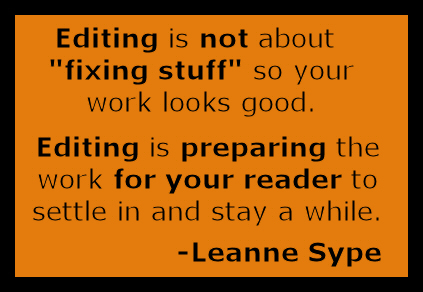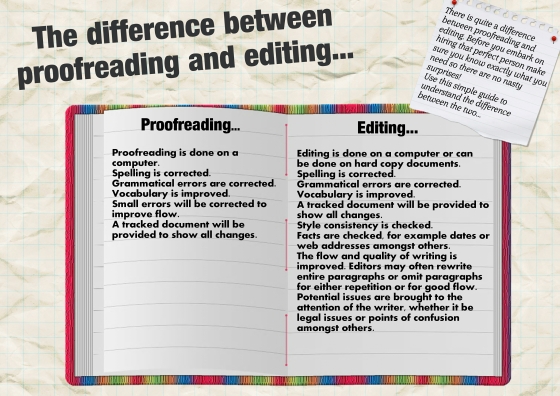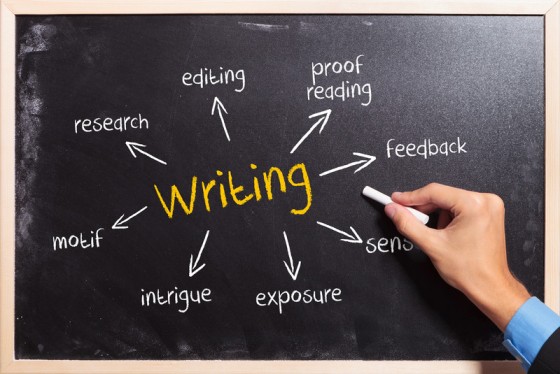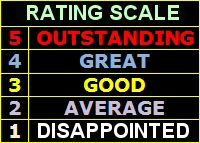
.
Today is another day about my ramblings. Today it is about copy editing.
Because lately I read an increasing amount of poor quality stories: grammar, typos, format, missing or double words, repeating words…. list is endless. I am not sure the issue comes from the author or the editor/publisher. I spend $$ and I should have quality in the product. (not talking about the story/romance).
I am upset to see big (and small) publisher names using their customers as milk cows with this careless attitude. IMO it damages the author’s reputation BIG time and words are spreading fast. When someone reads a book, will this person blame the editor or the author?
ME? both! It is both their responsibility to deliver quality… because guess what? I pay for it! Although this goes with self-published too. Which in this case the responsibility is entirely the author’s.
I can joke about it and say: How would I improve my English if I cannot rely on a book that was written and revised multiple times and most likely by different American/English professional people? But reality is I do not have an English Language and Literature degree and do not pretend to have one but if ***I***, being a french mother tongue, can notice poor edits, I consider myself as the last person who should notice those.
The funny (?) thing is that 99% of authors will not feel concerned about this post. But if they ask why they did not get the 5 stars they hoped, part of the answer is this. Some reviewers will not be shy to mention it, when some will include it the rating and won’t dare to mention it fearing to be ridiculed because after all, they are not authors so they cannot understand right? Guess what! we sure do!
So, do I look like I am lecturing or be above authors and/or publishers? HECK NO! I am a reader, occasionally a reviewer (not the shy one, the other one), once in a while a beta reader, sometimes a fan but most of all a customer.
You know, the editor’s job exists. Nobody can become an editor out of the blue. A BETA is NOT an editor. A FAN is NOT an editor. It takes a PROFESSIONAL with experience or an author that is extremely good… Yes, I met some. But lets face it, the huge majority is not ready and proof is that I read as I said more and more poor quality editing.
Many people struggle to differentiate between the various types of editing, but knowing the difference will help you to communicate with your editor more effectively. If you don’t understand the difference between copy editing, proofreading, and substantive editing, you could easily, mistakenly ask for a copy edit when you were really hoping to have someone look at the overall structure of your writing. Because of this confusion, the copy editor will spend all of his or her time dissecting your document searching for grammar and spelling mistakes, instead of focusing on the organization of the content.
It might help to think about substantive editing, copy editing, and proofreading as different parts of the publishing process. When a writer submits an unedited manuscript, the substantive editor will work with the author to reorganize the content. Then the manuscript is sent to the copy editor who needs to examine the document carefully, looking for issues with grammar, spelling, punctuation, and style. Next, the document is sent to the designer who formats the text. The proofreader receives the designed “proof” and goes through everything once more, this time looking for typographical errors and any mistakes that may have been missed previously.
Source: The Differences: Substantive Editing, Copy Editing & Proofreading by Stefanie Newell
.

.
I even did not mention the foreign translations… You know how I cringe when I notice that an author does not make any effort to make sure the translation is correct. Yes… I met a couple of “I AM a published author, therefore I-am-better-than-you” and a a couple that were devastated to notice that the release was already out… although authors, don’t you have in hand the FINAL VERSION when it is published? Don’t you check the FINAL edits? After all, it is your new born baby no?
I understand it hurts to be told that the edits sucks but pride should be put aside because in the long run, it is the reputation and how you will grow in the market. Again, readers are not fools. They may buy once, MAYBE give you a second chance but hardly a third one.
I went thru a huge amount of sites and blogs about this topic. I wanted to learn the process and make sure my ramblings were not misplaced. I found many interesting places that I posted the links on my facebook page. An author mentioned that considering the cost, it is very difficult to deliver the flawless final copy. I understand the costs but for me this is no excuse. As I said, if an employee does not do his job correctly, he will be fired. He may have a second chance but repeats will end to the same result: he will be replaced by another employee. And guess what? same with authors! If the quality is not there, very likely this author will loose fans and they will move on to the hundred that are out there delivering the same genre they like to read.
I also understand that many authors are self-publishing because it is way more profitable and there is a reason for that: the covers are often self-made, no copyeditor, no proofreader, no marketing, no agent, etc. Many authors would not be published unless they took their destiny in their own hands. But how many are on the top USA chart today? Not saying they are not good. On contrary, I found that many self-published authors were even better (in the edits area) than authors associated with publisher names. To be contracted with a publisher is definitely NOT a synonym of quality, that is a fact!
However, please keep in mind that I do not finger point to all the authors and publishers!!! Just some… just enough that lately it became a bitter taste when reading a story. I know also MANY great authors, self-published or not. I am not starting a war to every authors/publishers on the planet! Are we clear here? 😛
So what do I want? I do not expect perfection. I expect to read a story that typos and grammar will not become a burden and disrupts the flow of the romance. That’s what I am asking. I am asking more vigilance and care and make sure that authors have a final say before it is published because it is THEIR name on the book.
Am I entitled to ramble about poor quality? I think so. I did not pay for vintage but for new mint condition dammit!.
.

.
Note to publishers: if your customers are unhappy and complain about bad edits, DO something! Time to fire or recycle your staff or even hire a professional not a part-time overloaded person that rush the edits. Time to question yourselves in many aspects and the consequences about poor editing.
ETA: because Penny (comment) mentioned that sometimes it is the author that does not want to cooperate. I will add that it is the publisher’s responsibility to accept to still publish even though against the editor’s recommendation. Then there is a huge red flag of non-professionalism not from the editors but from the CEO publisher, not saying about the authors that disrespect their fans by this careless attitude. I HOPE this is only exceptional…
Conclusion: Thank you to be careful about what you are publishing, PLEASE!
.



























I agree 100%! I’ve noticed a lot of typos lately and not just in self-published authors. Yes, receipt is spelled correctly, but the author meant to say recipe. This drives me nuts! I’ve written to the publisher and never got a response. Grrrrrrr!
LikeLiked by 1 person
Some authors are smart enough to put aside their pride and hurts and react positively. Most publishers give s***t about their customers/readers because our request is probably one among thousands or even put in the bottom of their priorities.
It is sad, because the author suffers. It is not an healthy attitude to turn away the head because reputation is important and goes hand in hand with sales.
LikeLike
I’m only an editor. I can’t force authors to take advice, make changes, or put in the work their book needs. I’ve had authors tell me flat out they don’t want to work that hard on something they’ve already written. They just want to write the next story. Sure, there are lax editors out there. But an unpolished book does not automatically mean the editor didn’t try.
LikeLiked by 1 person
Thank you for your opinion, Penny.
That is extremely interesting to hear the other side of the coin indeed!
In my post, I mention that I hold responsible both, author and editor.
An editor report to the CEO publisher so IMHO, if an author does not collaborate, it is up to the publisher to agree or not to publish an unpolished story.
There are always good and bad in every sides:
* author who wants edits
* author who does not care
* editor who wants to be professional
* editor who does not care
* the perfect scenario: both want to deliver quality
* and the worse scenario: both do not care and just want numbers not quality
What I see is what I paid and get : an increased amount of story that are poorly written and badly edited.
My conclusion is that publisher most probably receive complaints and authors receive comments…. who to blame?
Again, I am just stating a fact: lately, I noticed an increased amount of poor edited stories… If my post raise the attention and publishers/authors act on it, I will fulfill my purpose because the customer in me will be happy.
LikeLike
Penny, I, too, am an editor. I just read a book published by a digital-only or digital-first small press that was full of typos. He instead of she! Peak for peek! That’s the responsibility of the publisher, not something the author ought to be fighting. As for the things the author can change… well, you’re right. Not every author is willing to do what’s best for their book, unfortunately.
LikeLike
I agree wholeheartedly. I’ve had authors tell me the same thing. Or, they come to me with a set, advertised publish date and give me 5 days or less to edit the document. But if they get slammed for editing, the fingers point back to me, so I attempt to make a purse from a sow’s ear.
LikeLike
Mary, I left you a note on Triberr, but I have more to say, including I just read a book from a digital-only (maybe digital-first?) publisher that was… horrible.
The problem is that many publishers pay on a royalty rate, which isn’t fair to me as an editor. I can’t pay my mortgage if a book doesn’t sell; that’s not my responsibility. I am hired to do a job — edit — and I should be paid for it. It’s a JOB. It’s not my newborn babe, as you point out above. I have no emotion vested in it the way the author does. So publishers need to pay me as though I’m doing a job, and not as though my success as a professional depends on the book’s success on the marketplace.
If that were to change — and publishers were willing to pay a good rate — I think you’d see better editing all around.
LikeLiked by 1 person
I hear you Susan. Thank you so much for sharing your opinion and experience
I think we have many possibilities and some publishers are on numbers published instead of quality published. I also believe that a couple of publishers are not big enough or grew a bit too fast and they cannot afford a full time editor and proofreader, the full time to make a book perfectly edited.
As I said, editor is a job. nobody improvised all of a sudden editor because they beta read and notice a couple of typos here and there. It goes way further than that.
MY real feeling is when I read your instead of you’re or those silly typos that are more phonetic versus grammatical, I think the author needs some lessons of proper english. It at the base, it takes triple work to rectify the first draft, then of course the publisher will not spend that amount of money if it is not worth it
At the end of the day, I mostly blame the publisher that let the book go public. A publisher should not publish a book unless the final version is perfect or near perfect.
I have this utopia idea that an author needs to have a literature and english degree. like a teacher or librarian, someone that love words and learned how to master them.
At the end of the day I realize that they are just ordinary people (most of them, still some exceptions).
The sad part is that publishers are like china industries, quality is not always there, but the numbers offer variety and cheap prices that readers can afford.
I love Berkley but who can afford a 9.99$ ebook all the time? For me it is the cherry on top but for the same price I can get 3 ebooks… so what do you think people get?
LikeLike
And in the Indie world, the author IS the publisher. The power is in the author’s hands, not the editor’s. Once it leaves my desk, it goes several other places, but never comes back to me. The only way I see the final product is to purchase it, and by then, I really don’t care to read it again.
LikeLike